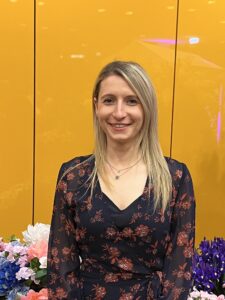Understanding why some Lymphomas are resistant to CAR-T therapy

Challenge
Diffuse large B-cell lymphoma (DLBCL) is the most common type of lymphoma, with an estimated 2,000 Australians diagnosed annually.
Patients who relapse early or do not respond to initial treatments often have poor outcomes. CAR-T therapy, immunotherapy is a treatment in which a patient’s own immune “T cells” are trained to kill lymphoma, has shown great promise in the treatment of DLBCL. However, CAR-T therapy is unsuccessful for more than half of patients and causes of treatment failure are unknown.
Focus
Helen’s research will use advanced technologies to study the structure and functions of components of DLBCL that are associated with resistance to CAR-T therapy and to determine why some patients do not achieve durable remission.
Impact
Helen’s research will aim to hasten the development of novel strategies and more effective CAR-T therapies for DLBCL that will provide a path of hope for ongoing remission for the patients who experience treatment failure.
Researcher
After completing her medical degree at Western Sydney University, Dr Helen Cashman completed advanced haematology training in Sydney followed by a Clinical Fellowship in Haematology in 2022 at University College London Hospital in the UK. She is currently undertaking a dedicated Lymphoma Fellowship at St Vincent’s Hospital in Sydney.
Dr Helen Cashman completed dual haematology specialist training in 2022 and has a strong interest in lymphoma biology and treatments.
Last updated on November 13th, 2023
Developed by the Leukaemia Foundation in consultation with people living with a blood cancer, Leukaemia Foundation support staff, haematology nursing staff and/or Australian clinical haematologists. This content is provided for information purposes only and we urge you to always seek advice from a registered health care professional for diagnosis, treatment and answers to your medical questions, including the suitability of a particular therapy, service, product or treatment in your circumstances. The Leukaemia Foundation shall not bear any liability for any person relying on the materials contained on this website.